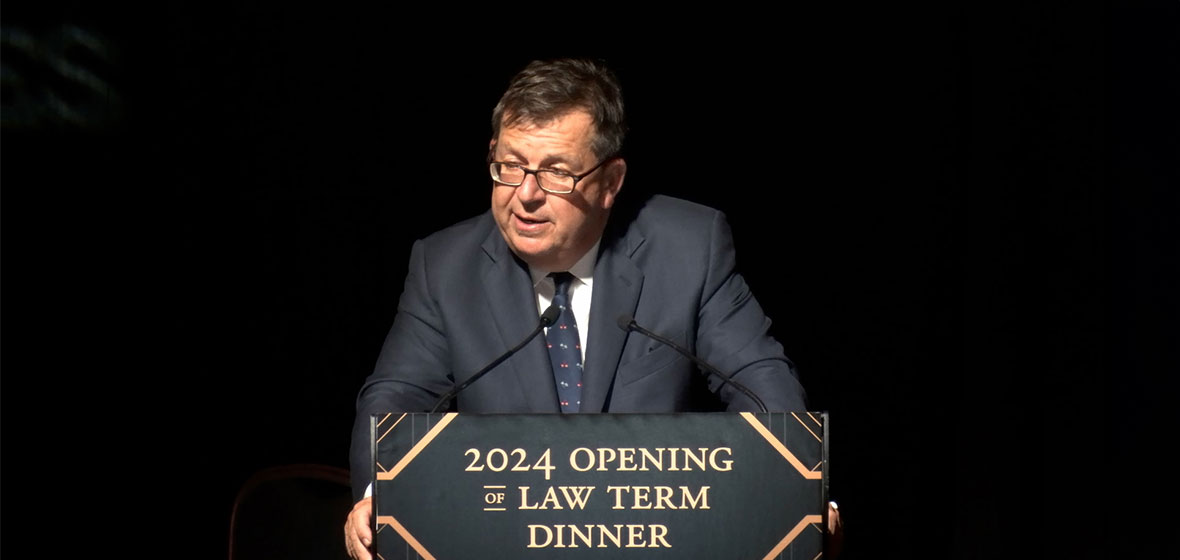The Law Society of NSW, Australia's largest professional legal body, has thrown its weight behind calls from the state's Chief Justice for increased funding for the court system.
Chief Justice Andrew Bell observed in his Opening of Law Term address that caseloads, particularly in the local court, are “unsustainable” and magistrates are “overstretched”. He also urged the NSW Government to properly value and fund the courts in the upcoming 2024-25 budget.
Law Society of NSW President Brett McGrath reiterated these concerns, highlighting the urgent need for more judicial officers, support staff, and court infrastructure to meet the growing demands on our justice system.
“The Law Society has consistently advocated for increased court resources, including additional magistrates and judges to reduce backlogs in our system. This issue was a central plank of the Law Society’s 2023 Election Platform,” McGrath said.
McGrath noted that delays in resolving cases can be detrimental to both the accused and the alleged victims of crime.
“Courts that are not able to provide a trial outcome to accused persons in a reasonable timeframe are not only unfair to them, but also to alleged victims of crime and their families. Matters can take many months, even into years, before being resolved”, McGrath said.
“The Chief Justice’s remarks echo the adage that ‘justice delayed is justice denied.”
While acknowledging previous increases in the number of judicial officers, McGrath stressed the importance of the justice system as “an essential service” and “a pillar upon which rests the stability of our democracy.”
McGrath further stated that “Government should also allow for the downstream effects of increases to police resources, which inevitably lead to more arrests, more pressure on courts and more people in our prisons.”
The news comes amidst ongoing concerns about backlogs and delays in NSW courts, which can have a significant impact on individuals and the community. The Law Society’s support for increased court funding adds to the significant pressure on the NSW Government to address this critical issue.




